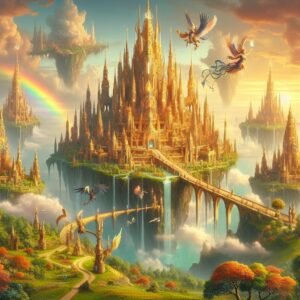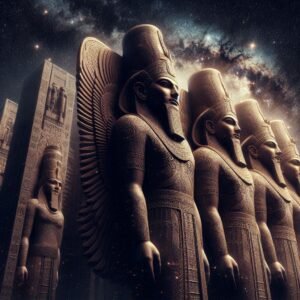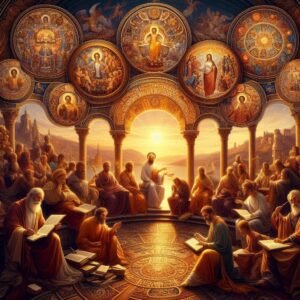
Gilgamesh, the legendary king of Uruk, is a towering figure in ancient Mesopotamian mythology and is best known as the protagonist of the Epic of Gilgamesh, one of the oldest surviving works of literature. According to the Sumerian King List, Gilgamesh was the fifth king of Uruk and reigned in the early part of the Early Dynastic II period (circa 2700 BCE). The historical Gilgamesh might have been a real ruler whose deeds were later mythologized, but the lack of contemporary records from his time means that the historical and mythological aspects of his figure are deeply intertwined.
An Akkadian Epic
The Epic of Gilgamesh, written in Akkadian during the late second millennium BCE, tells the story of Gilgamesh’s many adventures and his quest for immortality. In the epic, Gilgamesh is described as two-thirds god and one-third human, a being of superhuman strength and ambition. He begins as a tyrannical king who oppresses his people, but through his friendship with Enkidu—a wild man created by the gods to challenge him—Gilgamesh grows into a more compassionate and wise ruler.
Together, Gilgamesh and Enkidu embark on great adventures, defeating monsters such as Humbaba, the guardian of the Cedar Forest, and the Bull of Heaven, sent by the goddess Ishtar after Gilgamesh spurns her advances. These tales symbolize the struggles and triumphs of civilization over the wild and chaotic forces of nature. However, Enkidu’s death, a punishment from the gods for their slaying of the Bull of Heaven, deeply affects Gilgamesh and sets him on a quest to escape the same fate.
Gilgamesh’s fear of death leads him to seek out Utnapishtim, the survivor of the Great Flood and the only human granted immortality by the gods. Despite his efforts, Gilgamesh learns that immortality is reserved for the gods and that humans must accept their mortality. The epic concludes with Gilgamesh returning to Uruk, where he finds wisdom in accepting the inevitability of death and the importance of leaving a lasting legacy through the achievements of one’s life.
The Epic of Gilgamesh has had a profound influence on world literature, with parallels found in the Bible and Homer’s epics. The themes of friendship, the quest for meaning in life, and the acceptance of mortality are universal and continue to resonate with modern audiences. The character of Gilgamesh embodies the complexities of human nature, the struggle between hubris and humility, and the journey towards understanding one’s place in the world.
Link with Orion’s belt
In Sumerian mythology, The Constellation Orion is associated with the hero Gilgamesh. The Sumerians referred to Orion as URU AN-NA, meaning “the light of heaven.” This constellation was linked to the story of Gilgamesh’s battle with the Bull of Heaven, represented by the constellation Taurus.
The three stars of Orion’s Belt were associated with the hero Gilgamesh. These stars were seen as part of the constellation representing Gilgamesh’s celestial form, highlighting his divine status and heroic deeds. This connection underscores the importance of Orion’s Belt in ancient Mesopotamian star lore and its role in their mythological narratives.
The epic also provides valuable insights into the culture and beliefs of ancient Mesopotamia, including the role of the gods in human affairs, the nature of heroism, and the values of Sumerian society. The enduring legacy of Gilgamesh is a testament to the power of storytelling and the human desire to explore the mysteries of life, death, and the divine.
Subscribe to our post updates - Don't miss a thing!!







